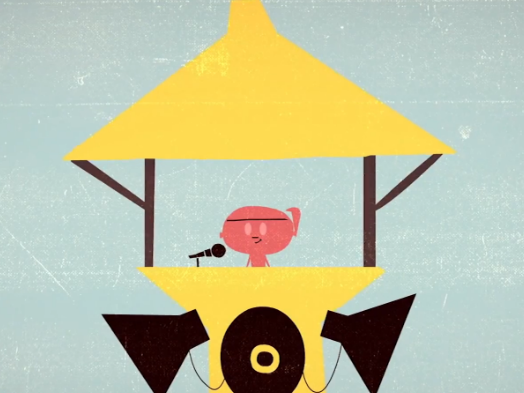Carl thinks, "If I have non-green eyes, Adria and Bill were just watching each other,
Carl想:“如果我不是绿眼睛,Adria和Bill只会互看彼此,
and will now both leave on the second night."
然后两人将会在第二个晚上离开。”
But when he sees both of them the third morning, he realizes they must have been watching him, too.
但当Carl第三天早上看到其他两人还在,Carl了解到一件事:其他两人知道Carl有绿色眼睛。
Adria and Bill have each been going through the same process, and they all leave on the third night.
而Adria和Bill也经过同样的推理过程,然后他们全部在第三个晚上要求离开。
Using this sort of inductive reasoning, we can see that the pattern will repeat no matter how many prisoners you add.
用同样的归纳推理方式,我们可以发现:不论岛上有多少居民,这个模式会不断重复。
The key is the concept of common knowledge, coined by philosopher David Lewis.
这个解答的关键就在于哲学家David Lewis所提出的公开知识这个哲学概念。

The new information was not contained in your statement itself, but in telling it to everyone simultaneously.
你的叙述本身,并不包含新的讯息,但是一旦告诉了每一个人,就会产生新的讯息。
Now, besides knowing at least one of them has green eyes, each prisoner also knows that
现在,除了知道居民当中至少一位有绿色眼睛,这些人也想着:
everyone else is keeping track of all the green-eyed people they can see, and that each of them also knows this, and so on.
所有人都在观察着其他拥有绿色眼睛的人,他们每个人都知道这件事。
What any given prisoner doesn't know is whether they themselves are one of the green-eyed people the others are keeping track of
居民们唯一无法确定的是:他们在其他人眼中是不是拥有绿色眼睛的人,
until as many nights have passed as the number of prisoners on the island.
一直要等到他们等待的夜晚天数,和岛上的居民数目一样为止。
Of course, you could have spared the prisoners 98 days on the island by telling them at least 99 of you have green eyes,
当然,你可以帮这些居民省下98天观察等待的时间。方法就是直接告诉他们:“你们当中至少有99位拥有绿色眼睛。”
but when mad dictators are involved, you're best off with a good headstart.
但是别忘了还有独裁者正在监视,所以你还是小心一点比较好。


